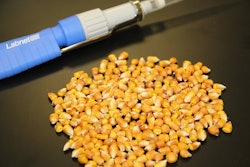
The way we use digital technologies in our work, personal lives, and across society has always changed the face of business and will continue to do so. In the past, it was the business that drove the rate of adoption for new digital technologies, but now it’s the customers who are demanding that businesses transform with support for digital interactions
The rate of digital innovation is now accelerating faster than the pace most companies are transforming to meet the demand. This means that all companies need to define their transformation strategy to becoming a digital organization or fail to compete against more agile competitors
What is Digital Transformation?
Digital transformation is a customer-centric business strategy employing new technologies and business processes to better deliver products, services, and experiences to all connected users. It’s primarily about a shift of focus from centralization to the edges of a company or organization’s ecosystem.
The key element of any digital transformation is the customer experience (CX) or “the last mile”. To become a digital organization, the whole business must transform to support a digital-first approach to CX.
Beware of….
The Culture Roadblock. The existing culture and way of doing things can be so deeply ingrained that it becomes very difficult to affect change. Employees are key to delivering a superior customer experience.
Leadership usually neglects, underestimates, or misunderstands the importance of culture in their digital transformation planning, and employees are becoming more digital as Millennials and Gen Z enter the workforce.
Digital Disruption. Digital Disruption is when an industry’s way of doing business is significantly challenged by newcomers or incumbents who cause a significant shift in customer behavior. The new digital technologies themselves are not disruptive, it’s the way they are used by the disruptor organizations. Disruptors take many vertical incumbents by surprise and massively accelerate the need to digitally transform to compete against them.
What’s the impact of ignoring a disruptor?
A recent study by CapGemini Consulting shows that since 2000, 52% of Fortune 500s have either gone bankrupt, been acquired, or ceased to exist. This statistic is directly correlated to the fact that 74% of organizations didn’t respond to a digital disruption in their industry for over two years, and 38% responded after four years.
Agribusiness in the Age of Digital Transformation
It is understood that the agri-supply industry is typically very “traditional”. Our industry has a high proportion of employees who are Baby Boomers and Generation X, especially in senior leadership positions.
Farmers are also predominantly from the same generation(s), however a new generation of Millennials are now becoming farmers by taking over from their retiring parents.
Millennials (and Generation X) are also increasingly replacing long-tenured employees in agribusiness, and they have difficulty engaging with traditional ERP solutions. Millennials expect 24/7 real-time digital interactions to be the norm rather than the traditional voice call approach that is common in agriculture.
The importance of understanding and responding to the need digitally transform to attract and/or retain this new generation of farmer customer and disengaged employees is vital.
The Essentials
In conclusion, a digital transformation strategy is essential for the long-term survival of all businesses, not just agribusinesses. A business must define a strategy, regularly review its progress, and adjust when necessary to address changing circumstances
Be diligent driving the strategy from the top down and engaging all stakeholders, and actively monitor for disruptor organizations and potentially disruptive technologies. Work to maintain current skillsets in digital technologies, and look for partners that can support your strategy and execution.
Stephen Berry is the lead software architect at Cultura Technologies, a family of agri-food software companies operating across North America and Europe.












